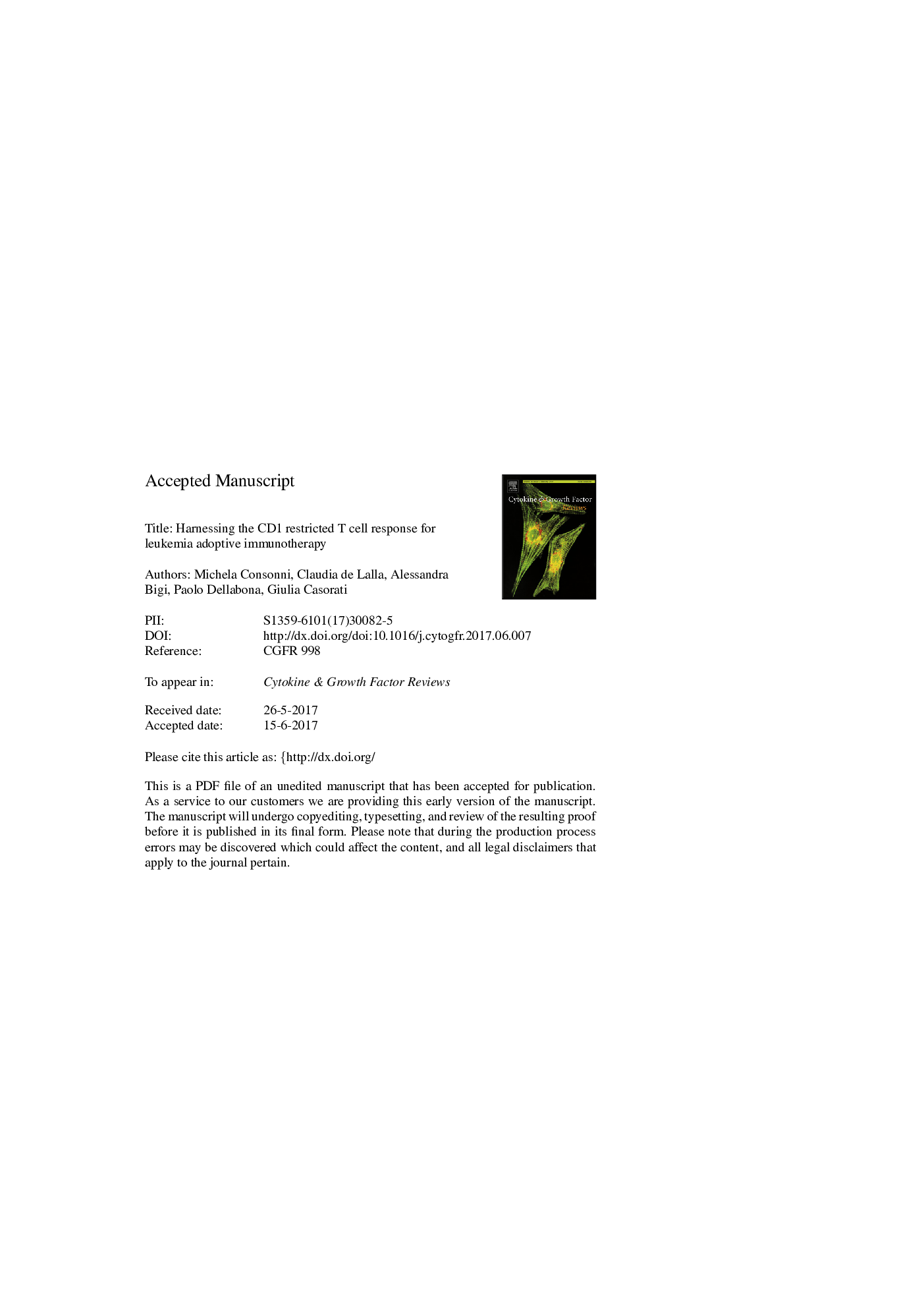| Article ID | Journal | Published Year | Pages | File Type |
|---|---|---|---|---|
| 5531197 | Cytokine & Growth Factor Reviews | 2017 | 26 Pages |
Abstract
Disease recurrence following chemotherapy and allogeneic hematopoietic cell transplantation is the major unmet clinical need of acute leukemia. Adoptive cell therapy (ACT) with allogeneic T lymphocytes can control recurrences at the cost of inducing detrimental GVHD. Targeting T cell recognition on leukemia cells is therefore needed to overcome the problem and ensure safe and durable disease remission. In this review, we discuss adoptive cells therapy based on CD1-restricted T cells specific for tumor associated self-lipid antigens. CD1 molecules are identical in every individual and expressed essentially on mature hematopoietic cells and leukemia blasts, but not by parenchymatous cells, while lipid antigens are enriched in malignant cells and unlike to mutate upon immune-mediated selective pressure. Redirecting T cells against self-lipids presented by CD1 molecules can thus provide an appealing cell therapy strategy for acute leukemia that is patient-unrestricted and can minimize risks for GVHD, implying potential prognostic improvement for this cancer.
Keywords
Related Topics
Life Sciences
Biochemistry, Genetics and Molecular Biology
Cell Biology
Authors
Michela Consonni, Claudia de Lalla, Alessandra Bigi, Paolo Dellabona, Giulia Casorati,
